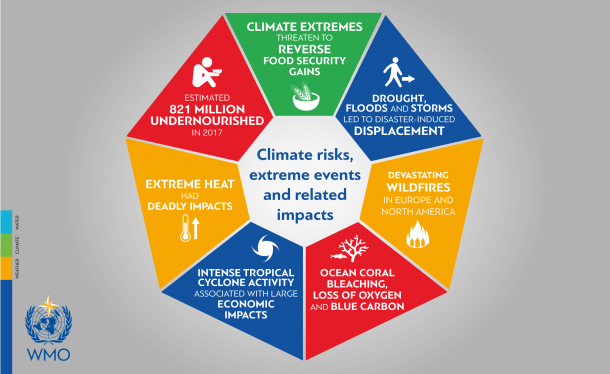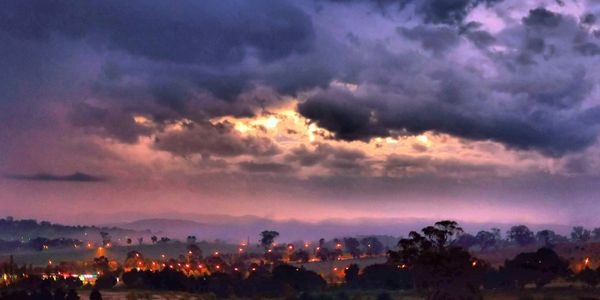Why 2050 is too darned late…
Dec 2nd, 2020 | By admin | Category: Climate ChangeBy Julian Cribb, guest writer.
One and a half million people are already dead, mostly because their governments did not act on sound medical advice about Covid in sufficient time.The question of our Age is how many will die if governments the world over fail to act in time on: global heating, global poisoning, the global water crisis, rising food insecurity, the nuclear arms race, ecological collapse, overpopulation, out-of-control technologies, new pandemics and, worst of all, global mass delusion.
The answer, according the most reliable scientific estimates, is that casualties will certainly run into the billions, affecting every country on Earth. How many must die, we shall all decide together by the mid-2020s.
What many people – and all governments – fail to appreciate is that humanity is facing an existential emergency, the likes of which we have never seen in all our million-plus years of existence. It isn’t just about climate, or pandemics, or even mass extinction. They are mere components in the ‘human traffic smash’. It is about all ten of the catastrophic risks we have created for ourselves, coming together at this one moment in time, each reinforcing the others.
The first clear, unambiguous worldwide warning about climate, to take one case, was sounded at the Rio Earth Summit in 1992. Since then, we have had almost three decades of empty talk, empty promises and inaction – and we are still just kicking the can down the road.
The planet is already +1 degree hotter than it was between 1850-1900. Forget preventing +1.5 degrees, as the original Paris Agreement hopefully envisaged. We could well break that boundary in the next four years, according to the World Meteorological Organisation. Global warming is going much faster than expected. The measures to prevent it are being sabotaged.
On present trends the world could hit +2 degrees as early as 2030 and almost certainly by 2050. At such a temperature, we can expect to see:
- Exponential increases in the number of extremely hot days, and high risk of heat deaths
- Massive polar ice losses adding 1.26 metres (4 feet) to sea level rise
- Wild weather, with extreme storms, floods and droughts
- A tenth of all animal and insect species gone from their current range
- Loss of 99% of the world’s coral reefs
- 16% loss in world wheat production and high risk of major crop failure and famines.
That’s just for starters. Adding in the other catastrophic risks, we can also expect:
- 6 trillion tonnes of human chemical emissions, mostly toxic, causing wholesale damage to our health and our genes
- 5-6 billion people facing acute water scarcity
- a doubling in global migration with 700+ million people a year seeking new homes
- sharply increased risk of war, including nuclear
- increasing collapses in ecosystems that support human life
- loss of 1.5 trillion tonnes of topsoil and a doubling in the rate of desert spread
- human numbers approaching 10 billion
- demanding the resources of two Planet Earths to support us all.
- around 10 more pandemics
- wars started by machines and waged by robots
- universal surveillance of individuals, cradle to grave.
By 2100, with 4 degrees of global warming and all the other factors unrestrained, things will be a lot grimmer. The global food supply will probably have failed, bringing economic collapse, social chaos, refugee tsunamis, unrestrained warfare and the end of civilization as we know it.
To hear people and governments talk, Covid-19 was one of the biggest things ever to happen to humans. It isn’t. It’s a minor blip, ultimately claiming a few million lives. When the full suite of catastrophic crises hit, we are talking billions.
How many deaths is anybody’s guess because it depends on how many nukes we release, but estimates range as high as 50-90 per cent of the human population at the time. Those are our children and grandchildren we’re talking about.
This is a decision that each of us personally will be asked to make, in the next few years. It is not a decision we can procrastinate on till 2030 or 2050, or fob off on governments. Because each of us is complicit in it by the way we live our lives and the resources we consume.
Every time you start your car, turn on a light or fire up the barbie, the carbon you emit will still be heating the planet in 2320. That is why our climate measures are so woefully inadequate and behind the times, as US climate envoy, John Kerry, has pointed out.
Every time you put on makeup, use plastics, eat industrial food or furnish your home you contribute to the 3 billion tonnes of poisons we collectively emit each year. By 2050 you personally will be adding a whole tonne of toxic chemistry to the biosphere a year that will help kill 12-20 million people. Every meal you now eat destroys 10 kilos of topsoil, uses up 800 litres of water, extinguishes wildlife and emits 3.5kg of carbon. And so on.
This is a planetwide emergency and it is under way now.
But it is an emergency to which every government on Earth is turning a blind eye. While they may have measures for particular risks, not one of them is addressing the overarching threat as a whole, or has a policy for human survival. And that is what we’re talking about.
Because governments are either ignorant or working to hide the facts; humanity too, remains broadly unaware of both the scale and speed of the emergency.
Part of the reason for this is that we are drowning in propaganda. Voltaire once said “Those who can make you believe absurdities, can make you commit atrocities.” More aptly, Simon & Garfunkel wrote “A man believes what he wants to believe and disregards the rest.” Humanity is presently gripped by the greatest delusion of all – that this isn’t really happening to us. Despite an overwhelming weight of tested evidence, going back decades, that it is.
Many are trying to convince us to believe ‘absurdities’. The $6 trillion fossil fuels and petrochemical sector, for one, and its hired tools in the world media and politics, brutally illustrated by the contest between fact and fiction in the recent U.S. election. Why Rupert Murdoch, the coal and petrochemical giants and the right wing of western political democracy think the end of human civilization will be good for business is a question only they can answer.
For humanity, there is only one answer. It is down to each of us, as individuals and as communities, in the 2020s to supply it. We are the last generation that can do so.
What we do in the next few months, five years at most, will decide our children’s fate forever.
The human existential crisis is not without solutions, many of which lead to a brighter, fairer, more prosperous world. We know the answers. We must implement those solutions with the greatest possible urgency.
Doing nothing or doing too little, too late, commits our civilization to failure – economic, societal, possibly even existential. It is time to acknowledge this, openly, honestly, truthfully.
We have only one rational choice before us: to choose to survive.
Because 2050 is just too darned late.
Julian Cribb is an Australian science writer on the human existential emergency and its solutions, in ‘Surviving the 21stCentury’ (Springer 2017), ‘Food or War’ (CUP 2019) and ‘Earth Detox (CUP May 2021).



